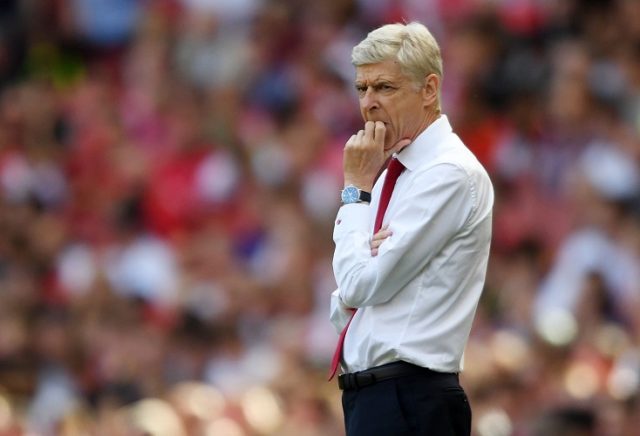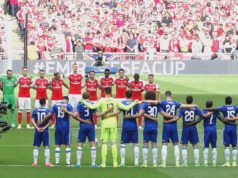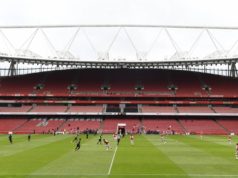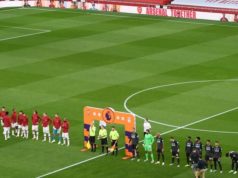There’s a rumour going around that one of the reasons for Arsene Wenger’s departure, was the increasing influence of Sven Mislintat. Apparently, Wenger wasn’t consulted on the transfers of Lacazette, Aubameyang and Mavropanos, which you may find odd because he once had unlimited power within the club.
If someone dropped a fork in the clubs dining hall, Wenger knew about it, but the addition of Mislintat as head of recruitment was an indication of just how much the Frenchman’s influence had faded. Wenger had become too busy with every aspect of the club and without his mentor and guardian, David Dein, Wenger was overstretched and eventually overwhelmed.
Mislintat was employed to reduce the burden and to find new and exciting talent, the likes of which Wenger used to find at his peak. Of course, a head of recruitment is like a tin of Ronseal – it does exactly what it says on the tin, so Wenger couldn’t have been that surprised when ‘ Diamond Eye’ was instructed to go off and find the club a number of quality additions.
Wenger’s recent transfer record could probably be described as patchy at best. Apart from the glory days of the first ten years, which included Pires, Petit, Viera, Overmars and Henry, Wenger’s radar had started to look incredibly damaged. Sanchez and Ozil were fabulous additions but there were many, many others that came and went without making a similar impact.
Chamakh, Vivas, Jeffers, Bischoff, Gabriel, Cygan, Gervinho, Senderos, Inamoto and Stepanovs are examples of Wenger’s transfer blunders but Kim Kallstrom is surely the standout. In 2014, the 33-year-old Swedish international was signed on a six-month loan deal whilst injured and he only appeared four times in an Arsenal shirt.
Mislintat was the obvious answer to that problem, having unearthed a great many emerging talents and in the process acquiring a reputation as one of the World’s top scouts, he could be relied on to deliver consistently. This obviously simplifies Wenger’s exit which many will now know was not of his choice.
Gazidis met with the board members without Wenger present and discussed the clubs position. After another consultation and a series of increasingly poor results, Wenger’s employers told him that they had no alternative but to ask him to resign or face being dismissed. Wenger has obviously conducted himself throughout with the utmost dignity and remained silent but he is said to be heartbroken that his contract was effectively terminated after showing such loyalty for so long.
There are of course other factors involved, Kroenke’s son Josh is to assume complete control of the club within the next few seasons and Gazidis has been trying to restructure the management role at the club for some time. Wenger’s resistance to change and the ideas presented by Gazidis meant that eventually, there would be only one outcome.
Gazidis was in fact assisted from within the team when he was approached about the special treatment given to its then star, Alexis Sanchez. Wenger had become so preoccupied with keeping the Chilean, that the players wishes were met readily. Additional time off, extra training sessions were just some of the things mentioned to the open ear of the loathsome CEO.
Then Wenger announced that Sachez and Ozil would not be sold, even if the club could not resolve their contract issues and may even leave on a free transfer on its expiry.
The board were furious, they were in no mood to let a player walk out of the Emirates into the arms of another club without recouping some, if not all, of their original investment.
If Wenger had thought a public declaration would prompt the club to cut a deal for Sanchez and Ozil, he was mistaken. If it was to notify the fans that if either were sold, it was not his decision, then it was to have serious ramifications within months. The board also took note when the players held a meeting without Wenger to discuss the team’s dwindling form. This was lead by Per Mertesacker the then Arsenal Captain, but it added to the feeling that Wenger was no longer in control.
Last season, Aaron Ramsey allegedly met with Wenger regarding tactics and formation.
Shortly after Wenger ditched his back four in favour of a three, which was seen as another example of capitulation and increasing weakness. Wenger had been informed at the midway point of this season that the majority of the board had lost faith in the Frenchman but he remained confident he could turn things around.
The Gunners coughed and spluttered in the Premiership, they were dumped out of the FA Cup, lost ground to the top five and were bundled out of the champions league, which led to swaths of empty seats at the Emirates. This was to be the final straw.
The hierarchy, led by Gazidis decided that they had no choice but to replace their long serving manager after only one season of his two year extension. An oblivious Wenger went to an arranged meeting with his plans for the remainder of the season and the beginning of next, but he soon discovered that this was a gathering that would effectively end his Arsenal career. The announcement was made two days later and sent shockwaves around the football community.
Wenger had to go, he had stayed on for too long but it was the timing of the announcement that most found baffling, with Arsenal still heavily involved in the Europa league. If it was a move to motivate the players, it failed. The weakness that had dogged Wenger’s recent campaigns had come back to haunt him again. He wanted to turn back the clock to experience the exhilaration of the glory days but sadly his time had run out.





